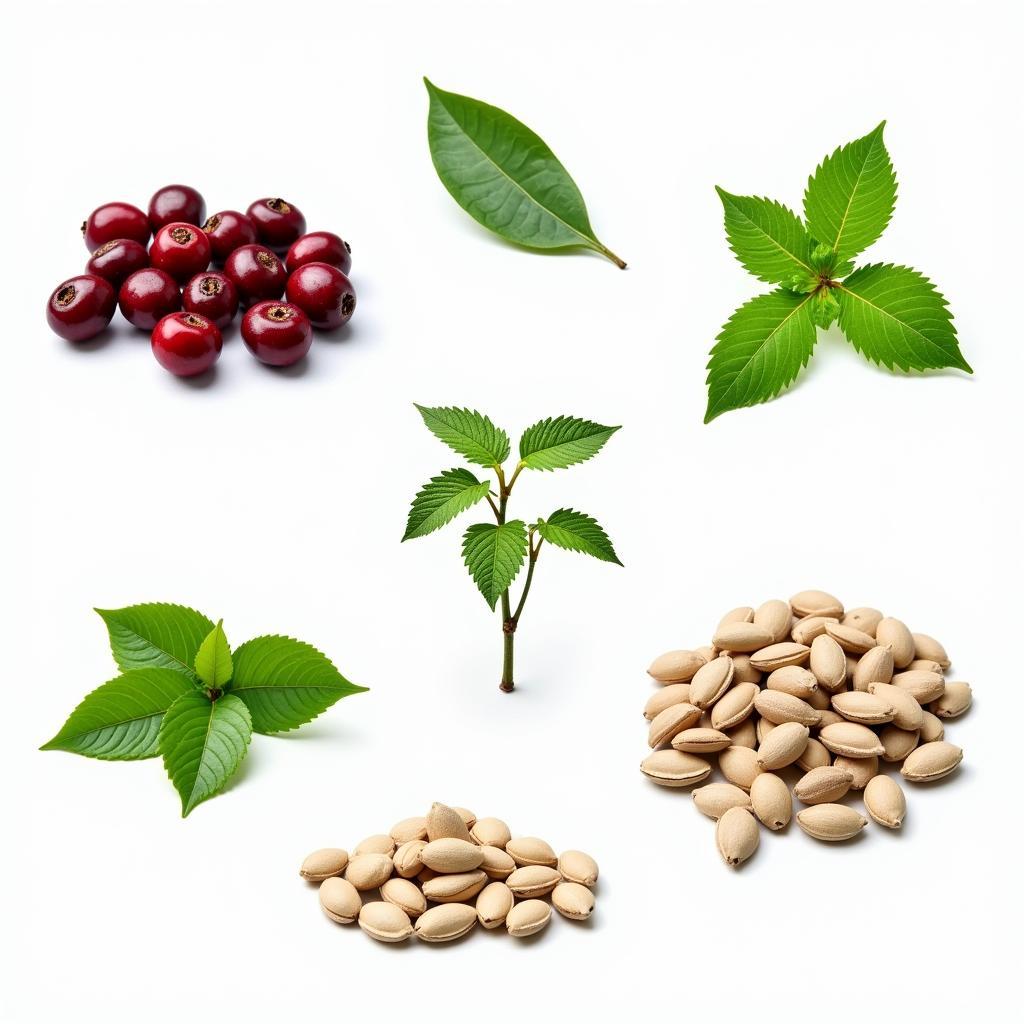Prostate health is a crucial aspect of men’s well-being, and herbal medicine has gained significant attention as a potential complementary approach in Pakistan. This comprehensive guide explores the diverse world of herbal remedies traditionally used for prostate health, their potential benefits, and important considerations for safe and informed decision-making.
Understanding the Prostate and Common Concerns
The prostate is a small gland situated beneath the bladder in men, responsible for producing fluid that nourishes and protects sperm. As men age, the prostate can undergo changes that may lead to various health concerns. Some common prostate issues include:
- Benign Prostatic Hyperplasia (BPH): This non-cancerous enlargement of the prostate is widespread among older men, causing urinary problems.
- Prostatitis: Inflammation of the prostate, leading to pain, discomfort, and urinary issues.
- Prostate Cancer: While less common than BPH, prostate cancer requires early detection and treatment.
The Rise of Herbal Medicine for Prostate Health
Traditional medicine systems like Ayurveda and Unani have long recognized the potential of herbs in addressing prostate health. In Pakistan, where cultural heritage intertwines with healthcare practices, herbal remedies are often sought as complementary options.
Several factors contribute to the growing interest in herbal medicine for prostate health:
- Perceived Natural Approach: Herbal medicines are often perceived as gentler and less likely to cause side effects compared to conventional treatments.
- Cultural Familiarity: Traditional medicine practices are deeply ingrained in Pakistani society, making herbal remedies a familiar choice.
- Accessibility and Affordability: Many herbs used for prostate health are readily available and relatively affordable, especially in local markets.
Commonly Used Herbs for Prostate Health in Pakistan
Pakistan boasts a rich biodiversity, providing a diverse array of medicinal plants. Some of the most commonly used herbs for prostate health include:
- Saw Palmetto (Serenoa repens): This popular herb may help reduce prostate size and improve urinary symptoms associated with BPH.
- Pygeum (Pygeum africanum): Extracted from the bark of the African cherry tree, Pygeum is believed to alleviate urinary issues and inflammation related to BPH.
- Stinging Nettle (Urtica dioica): This herb might inhibit prostate growth factors and potentially alleviate symptoms of BPH.
- Green Tea (Camellia sinensis): Rich in antioxidants, green tea may offer protective benefits against prostate cancer.
- Pumpkin Seeds (Cucurbita pepo): These seeds contain beneficial compounds that might support prostate health and urinary function.
 Common Herbs for Prostate Health
Common Herbs for Prostate Health
Scientific Evidence and Traditional Wisdom
While traditional use provides a strong foundation for exploring the potential of herbal medicine, it’s essential to acknowledge the scientific evidence supporting these claims. Research on the effectiveness of herbal remedies for prostate health is ongoing, and results are often mixed.
Dr. Asif Khan, a renowned urologist in Lahore, emphasizes the need for a balanced perspective: “While some herbs show promising results in clinical studies, others require further investigation. It’s crucial to consult with qualified healthcare professionals for personalized advice and to ensure the chosen herbs are safe and appropriate.”
Safety Considerations and Potential Interactions
While herbal medicines are often perceived as natural and safe, it’s crucial to exercise caution and prioritize safety.
- Dosage and Quality Control: Ensure to obtain herbal products from reputable sources that adhere to quality control standards. Follow recommended dosages carefully.
- Individualized Approach: Herbal remedies may not be suitable for everyone. Consult with a healthcare professional, especially if you have pre-existing medical conditions or are taking other medications.
- Potential Interactions: Herbal remedies can interact with conventional medications. Inform your doctor about all the supplements and medicines you are taking.
Making Informed Decisions About Prostate Health
Managing prostate health often requires a multifaceted approach. While herbal remedies might offer potential benefits, it’s crucial to make informed decisions in consultation with healthcare professionals.
- Open Communication: Discuss your health concerns, including the use of herbal remedies, with your doctor.
- Comprehensive Evaluation: Seek proper diagnosis and treatment for any prostate-related issues.
- Integrative Approach: Explore the potential of combining conventional medical treatments with complementary therapies like herbal medicine under professional guidance.
 Consulting a Healthcare Professional about Prostate Health
Consulting a Healthcare Professional about Prostate Health
Conclusion
Herbal medicine holds a significant place in addressing prostate health concerns in Pakistan. While traditional use and anecdotal evidence provide a starting point, ongoing research is crucial to validate these claims and establish safety profiles. By combining traditional wisdom with scientific evidence and seeking guidance from qualified healthcare professionals, individuals can make informed decisions about incorporating herbal remedies into their prostate health regimen.
Remember, early detection and proactive management are vital for maintaining optimal prostate health. If you have concerns about your prostate health, don’t hesitate to seek professional medical advice.
Frequently Asked Questions (FAQs)
1. Are herbal remedies for prostate health safe for everyone?
Herbal remedies may not be suitable for everyone, especially those with pre-existing medical conditions or taking other medications. Consult with a healthcare professional for personalized advice.
2. How long does it take for herbal remedies to show results for prostate health?
The time it takes for herbal remedies to show noticeable effects can vary depending on the individual, the specific herb, and the severity of the condition.
3. Can I take herbal remedies alongside conventional prostate medications?
It’s crucial to inform your doctor about all supplements and medications you are taking, as herbal remedies can potentially interact with conventional medications.
4. Are there any side effects associated with using herbal remedies for prostate health?
While generally considered safe when used appropriately, herbal remedies can still cause side effects in some individuals.
5. Where can I find reputable sources of herbal products in Pakistan?
Seek herbal products from reputable health stores, pharmacies, or licensed practitioners of traditional medicine systems like Ayurveda and Unani.
Need further assistance? Reach out to our team at +923337849799, news.pakit@gmail.com, or visit us at Dera Ghazi Khan Rd, Rakhni, Barkhan, Balochistan, Pakistan. Our dedicated customer care team is available 24/7 to address your queries.